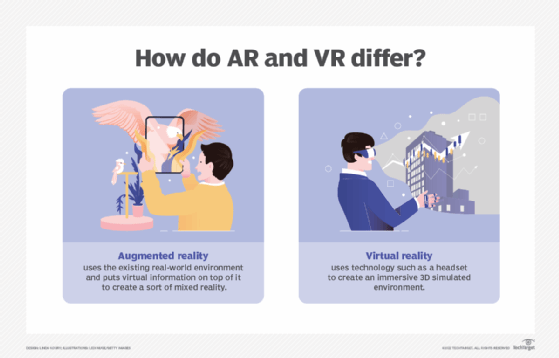The Impact of Augmented Reality on Brand Engagement Experiences
Meta Description: Discover how augmented reality (AR) transforms brand engagement, offering innovative marketing strategies and real-world case studies. Explore the future implications and actionable insights for marketers.
In today’s fast-paced digital landscape, brands are constantly seeking innovative ways to connect with consumers. One technology that is empowering this connection is Augmented Reality (AR). By melding the digital realm with the physical world, AR enriches brand experiences in a way that captivates and engages consumers like never before. In this post, we will delve into the profound impact of AR on brand engagement experiences—examining case studies, emerging trends, and solidifying its future in marketing strategies.
As an expert with over seven years of experience in digital marketing and technology integration, I have had the privilege of witnessing firsthand the transformative power of AR in building immersive consumer experiences. This technology not only enhances engagement but also paves the way for future innovations.
Understanding Augmented Reality
What is Augmented Reality?
Augmented Reality refers to the integration of digital information—such as images, sounds, or other data—into the real-world environment, enhancing a user's perception of reality. Unlike Virtual Reality, which immerses users in a completely digital environment, AR overlays digital content onto the physical world through devices like smartphones, tablets, or AR glasses. This makes AR a powerful tool for brands looking to create unique, interactive experiences for their audience.
Market Growth and Adoption of AR
The global AR market has been on an exponential rise. According to a report from Statista, the market size for Augmented Reality is projected to grow from USD 18.8 billion in 2023 to USD 198.17 billion by 2028, reflecting a CAGR of 42.9%. This growth is driven by the increasing adoption of AR across diverse sectors, including retail, automotive, entertainment, and more.
| Year | Market Size (USD Billion) | CAGR (%) |
|---|---|---|
| 2023 | 18.8 | 42.9 |
| 2024 | 29.0 | 53.2 |
| 2025 | 45.8 | 58.6 |
| 2026 | 68.4 | 52.0 |
| 2027 | 113.4 | 57.1 |
| 2028 | 198.17 | 42.9 |
Consumer Preferences for AR Experiences
The increase in AR usage can also be attributed to shifting consumer preferences. A survey conducted by Retail Perceptions found that 61% of shoppers prefer to shop at retailers that offer AR experiences. This statistic underscores how AR enhances not just engagement but also influences shopping behaviors.
Successful Case Studies in AR
IKEA Place: Visualizing Furniture
One of the standout examples of AR in action is the IKEA Place app, which allows customers to visualize how furniture would look in their own homes before making a purchase. By simply pointing their smartphone camera at a space, users can see 3D models of IKEA products overlaid on their environment. This innovative approach not only helps to enhance customer confidence but has also resulted in a 20% increase in sales for products featured in AR.
Sephora Virtual Artist: Makeup Try-On
Another remarkable application of AR is found in Sephora's Virtual Artist tool. This feature allows customers to virtually try on different makeup products using their smartphone cameras. This engaging experience leads to a significant increase in conversion rates—an impressive 33% boost among users who utilized the tool, showcasing AR's efficacy in driving consumer engagement and sales.
The Psychology of Engagement: AR’s Emotional Connection
The integration of AR into marketing strategies taps into the psychological aspects of consumer engagement. According to research by the Oxford University Press, immersive experiences can increase brand recall by up to 7 times compared to traditional marketing methods. By creating engaging, memorable interactions, brands can forge emotional connections with consumers, leading to elevated loyalty and brand preference.
Emerging Trends and Innovations in Augmented Reality
Convergence with AI and Machine Learning
As AR technology matures, we witness its convergence with Artificial Intelligence (AI) and Machine Learning. This union allows for more personalized consumer experiences, enabling brands to tailor AR interactions based on individual preferences. For instance, AI-powered facial recognition can suggest products in AR applications, making marketing efforts not only more engaging but also incredibly targeted.
Changes in Consumer Behavior Post-Pandemic
The COVID-19 pandemic has transformed consumer shopping habits, pushing brands to adapt e-commerce strategies. The growing online shopping trend has further elevated the significance of AR by bridging the gap between physical and digital experiences, facilitating a seamless transition for consumers in their purchasing journeys.
Future Implications: The Role of AR in Marketing Strategies
Long-Term Projections
AR is expected to reach ubiquitous adoption among major brands by 2030. As technology evolves, we anticipate extensive enhancements in AR capabilities, making it a cornerstone of digital marketing strategies. According to Gartner, by 2025, 60% of the population will interact with AR daily, emphasizing its future potential.
Preparing for AR Implementation
As marketers look to incorporate AR into their strategies, it’s essential to consider a roadmap for implementation. Here are a few actionable steps:
Choose the Right Tools: Platforms like ARKit for iOS and ARCore for Android provide robust development kits for AR projects.
Collaborate with Specialists: Partnering with tech companies or agencies that specialize in AR content creation can facilitate seamless integration and execution.
Plan Measurement Metrics: Determine KPIs such as engagement rates, conversion rates, and user interactions to measure AR campaign success effectively.
Conclusion
As augmented reality continues to reshape brand engagement experiences, marketers must stay ahead of the curve by adopting innovative strategies that resonate with today’s consumers. From enhancing product visualization to creating memorable interactions, AR opens up avenues for unprecedented creativity and connection.
Are you ready to explore how AR can revolutionize your brand's engagement strategies? Dive deeper into our resources, join the conversation about technology in marketing, or subscribe to our newsletter for the latest insights and updates in this dynamic field!
